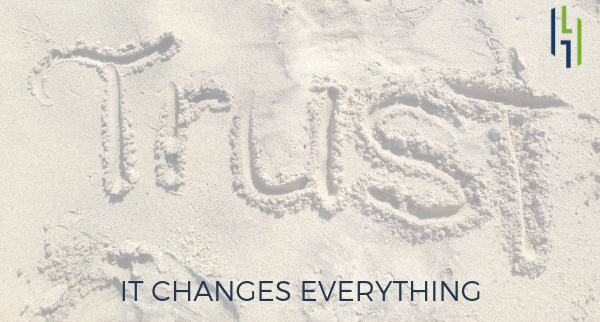Trust Changes Everything
- Arthur M. May
- Apr 25, 2019
- 3 min read
I heard someone once say that trust is like a sand castle, hard to build but easy to destroy. How true is that? It takes time, effort, consistency, and commitment to build trust. What I have found in working with many leaders is that trust comes not from the people in our organization, but from the environments that leadership creates within an organization.
Let me share with you first-hand how trust in an organization really can make a difference between life and death.
Not long ago, I found myself in the ER of Sutter Roseville Medical Center having a cardiac event. And suddenly I had to put my trust and my life in the hands of a group of medical professionals that I had never met. As I spent the next 20 hours in ER and the next three days in the hospital I saw a group of professionals have complete trust in one another. The Chief Medical Executive had created an environment where regardless of chaos, all staffing shared a level of trust that transcended to me, the patient, knowing I was being cared for and and more importantly that I mattered to them.
Creating an environment of trust is essential for our success, be it in our relationships, our work place, the ER of a hospital or on the battlefield. Trust within our organization is critical.
There are so many people who have such hatred, anger, at the leadership within so many different companies with their disproportionate salaries and bonus structures.
It's not the numbers so much that matters.
It's that they have violated the very definition of leadership. They have violated this deep-seated social contract. We know that they allowed their people to be sacrificed so they could protect their own interests. This is what so offends us, it’s actually not about the numbers.
Great leaders would never sacrifice the people to save the numbers. They would sooner sacrifice the numbers to save the people.
When we feel safe inside the organization, we will naturally combine our talents and our strengths and work tirelessly to face the dangers outside and seize the opportunities.
Leadership is a choice. It is not a rank.
I know and work for many people at the senior most levels of organizations who are absolutely not leaders. They are authorities, and we do what they say because they have authority over us, but we would never follow them, this is what is known as a positional leader. You follow them because you have to.
I also know and coach many people who are at the bottom of organizations who have no authority and they are absolutely leaders, and this is because they have chosen to look after the person to the left of them, and they have chosen to look after the person to the right of them. This is what a leader is, it’s not being in charge but taking care and growing those in our charge.
What is the environment that you are creating in your organization? Are you building an environment of trust with your teams.
Trust starts with our ability to listen and adapt our approach. Are you one to jump in and want to fix the problem, or one to listen and ask questions?
In your next conversation with a staff member, I encourage you to see how you show up. Does the person you are meeting need someone to be direct to the point, or do they need someone to show up from a relational standpoint knowing that you have their back?
Understanding how people build trust first, and then how you build trust secondly. Then match how the person before you builds trust.
In your next conversation, ask yourself...
"Can I stay curious a little longer? Can I rush to action and advice giving a little slower?"
.png)






Comments